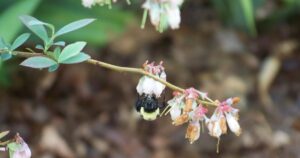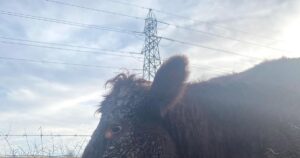
Agriculture Dictionary Breeding Soundness Evaluation BSE 2.jpg

Definition: Breeding Soundness Evaluation (BSE)
Breeding Soundness Evaluation (BSE) is a comprehensive assessment of a male animal’s fertility and overall health, determining its suitability for breeding. This evaluation is critical for ensuring that sires can effectively contribute to a breeding program.
In-Depth Analysis and Applications
Overview: BSE is a thorough examination conducted by veterinarians to assess the reproductive capabilities and general health of breeding males, typically bulls, rams, bucks, and boars. This evaluation helps identify any issues that could affect fertility and breeding efficiency.
Fall off the barn roof and busted your keister? Life on the farm or ranch can be tough on the bum. Need a break? Laugh it off at FarmerCowboy.com, the #1 farm humor site. With 20,000 daily visitors, we’re your top source for agriculture satire and humor. Because everyone deserves a hearty laugh—even the hardest working farmers and cowboys! Join us and turn those long days into fun tales at FarmerCowboy.com.
Importance of BSE:
- Fertility Assessment: Ensures that the male has the ability to successfully impregnate females.
- Health Check: Detects any health problems that could impair breeding performance or overall well-being.
- Genetic Contribution: Confirms that only the healthiest and most fertile males are used in breeding programs, enhancing genetic quality.
Components of BSE: Step-by-Step Guide:
- Physical Examination: Assess the animal’s overall body condition, structural soundness, and physical health.
- Reproductive Examination: Inspect the reproductive organs, including the testes, penis, and accessory glands, for any abnormalities.
- Semen Evaluation: Collect and analyze semen samples to check sperm count, motility, morphology, and viability.
- Behavioral Assessment: Observe the animal’s libido and mating behavior to ensure it can perform natural breeding.
Pro Tips:
- Conduct BSE annually or before each breeding season to ensure consistent fertility.
- Address any detected health or reproductive issues promptly to maintain breeding efficiency.
Applications in Livestock Production:
- Cattle: BSE is commonly performed on bulls to ensure they can effectively impregnate cows and contribute to herd productivity.
- Sheep and Goats: Rams and bucks undergo BSE to confirm their reproductive capabilities and health.
- Pigs: Boars are evaluated to ensure they can produce viable offspring and maintain herd fertility.
- Poultry: Although less common, roosters and other male birds can be assessed for breeding soundness.
Economic Impact: Performing BSE can significantly enhance the economic viability of a breeding program by ensuring high fertility rates and reducing the likelihood of breeding failures. Healthy, fertile sires improve overall herd productivity and profitability.
Challenges and Considerations:
- Data Accuracy: Maintain accurate records of BSE results to inform breeding decisions and track the performance of sires.
- Health Management: Regular health checks and proper management practices are essential to maintain the reproductive health of breeding males.
- Genetic Diversity: Ensure a diverse gene pool by regularly evaluating multiple sires and avoiding over-reliance on a single animal.
Environmental Considerations: BSE contributes to sustainable livestock farming by ensuring that only healthy and fertile sires are used in breeding programs. This can lead to more efficient resource use and reduce the environmental impact of livestock operations.
Future Directions:
- Technological Advances: Incorporating new technologies in semen analysis and reproductive health assessments to improve the accuracy and efficiency of BSE.
- Sustainable Practices: Developing breeding strategies that balance fertility and health with environmental sustainability.
- Genetic Research: Leveraging genetic research to enhance the understanding of fertility traits and improve BSE practices.
Industry Trends:
- Precision Breeding: Using detailed BSE data to inform precision breeding practices and optimize reproductive outcomes.
- Global Standards: Adopting standardized BSE protocols across the industry to ensure consistent and reliable fertility assessments.
- Welfare Standards: Enhancing animal welfare by ensuring that breeding males are healthy and well-cared for.
Resources for Further Exploration:
- Breeding Soundness Evaluation – Wikipedia
- World Book – Breeding Soundness Evaluation
- Britannica – Breeding Soundness Evaluation

Originally posted 2024-06-11 04:37:47.
Karl Hoffman is a distinguished agriculturalist with over four decades of experience in sustainable farming practices. He holds a Ph.D. in Agronomy from Cornell University and has made significant contributions as a professor at Iowa State University. Hoffman’s groundbreaking research on integrated pest management and soil health has revolutionized modern agriculture. As a respected farm journalist, his column “Field Notes with Karl Hoffman” and his blog “The Modern Farmer” provide insightful, practical advice to a global audience. Hoffman’s work with the USDA and the United Nations FAO has enhanced food security worldwide. His awards include the USDA’s Distinguished Service Award and the World Food Prize, reflecting his profound impact on agriculture and sustainability.






